Britain on the Breadline: Middle Class, Hungry and Homeless
Budget cuts, taxation changes and a reworking of the benefit systempoint to tough times ahead for Britain's families
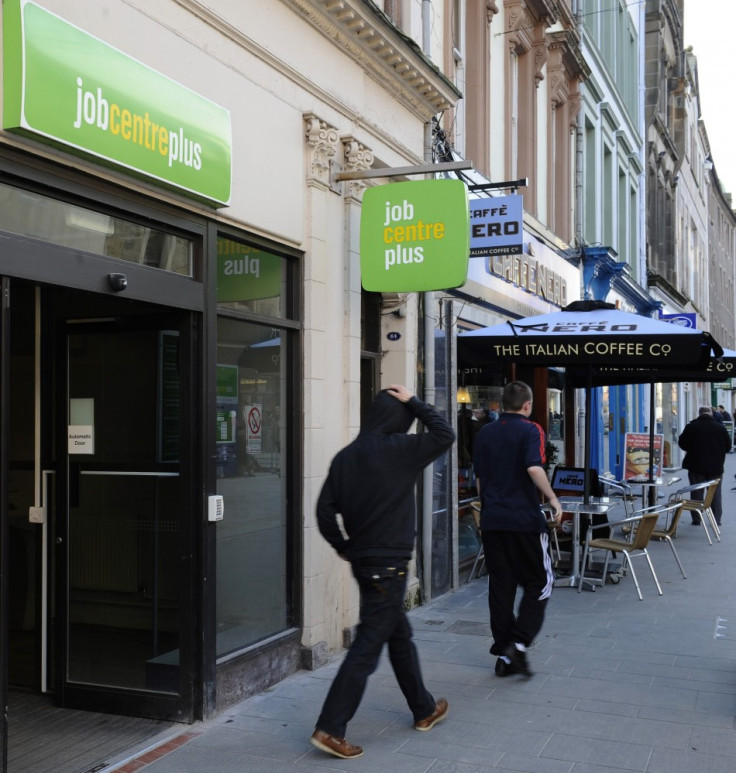
Jagvinder looks at his dwindling supply of food in the cupboards and he knows that in less than a week's time he will be going hungry and will most likely be back on the streets of Birmingham again. However, Jag, as he likes to be known (and who wants to keep his full name withheld), is not a drug addict, alcoholic, long-term unemployed or any of the numerous tags that society bolts on to the hungry and homeless.
Instead, Jag, 36 has entered the legions of middle-class individuals and families in the UK seeking food and shelter after losing a steady wage. It is a story that has become increasingly common and has left millions of others on the brink of destitution.
"Within two weeks, I had gone from earning a decent wage, living in a nice flat in a good part of town, a social life and food on the table, to sleeping on a park bench and not eating for a week," Jag says. "I have worked my entire life and always lived comfortably through hard work, but now I find I can go hungry for a week at a time. Foodbanks are keeping me going."
Until March, Jag was earning a reasonable wage of £22,000 a year, close to the average wage for the Birmingham area of £25,689, according to compensation data firm Payscale. Throughout his career Jag had worked for youth charities, such as the Prince's Trust and mental health organisations, and in his last job he had worked for a government working programme putting together the long-term unemployed and corporations that were looking to hire.
Jag, like many others, lived within his means, only accrued manageable debt and was more than comfortable in his flat situated in the fashionable part of the city, known as the Mailbox. Regularly socialising with friends and going on holidays were never an issue, much less finding regular meals.
However, after the government cancelled his company's contract, Jag was put on one weeks' notice. The next day a sign on the company door said that the company was being liquidated.
"We were all told that we would be OK and that we would still receive our pay for that month," Jag says. "However, when the time came to be paid there was nothing in our bank accounts and my landlord gave me two days' notice to leave my flat. I don't want to name the company as I, and many others, are trying to recover some of the money that is owed to us."
One pay cheque away from a crisis
Unemployment in the UK reached 2.67 million in January, according to the Office for National Statistics (ONS) and rose by 28,000 in the three months leading up to January. While this is the smallest rise for over a year, it has led to a growing number of middle-class families being squeezed to within an inch of their lives. Prospects look bleak too. The Institute for Public Policy Research has warned that an extra 100,000 people will be jobless by the end of the summer.
Three areas in Birmingham sit in the top five worst-affected areas of unemployment in the UK: Birmingham Ladywood 12.4 percent, Birmingham Hodge Hill 10.7 percent, and Birmingham Sparkbrook 9.8 percent.
While it is important to stress that in the economic climate that the poor are getting poorer, the number of middle-class individuals and families that used to earn average or above-average wages, living in enviable family homes and flats and working in white-collar jobs, are now falling below the breadline and are turning to foodbanks for help.
"You are only one pay cheque away from a crisis," says Chris Mould, executive chairman of Trussell Trust. "In the UK, analysis suggests two out of three households don't have savings. So whether you are earning a lot and spending a lot or earning little and spending little, if you lose your job and have a number of fixed outgoings, you will rapidly fall off the edge."
The Trussell Trust launched a new foodbank every four days in 2011 around the UK and this is predicted to rise as it provides emergency food to individuals and families in a crisis, as well as providing regular food aid in exchange for vouchers obtained from over 60 agencies, including the Citizen's Advice Bureau, Job Centres and schools.
In 2011-12, over 100,000 people in the UK received emergency food help, which is 60 percent more than the previous year. Mould expects this to significantly grow over the next year.
"Since 2008, because of recession, there has been a significant increase in the volume of people who are going through a transition that causes them to fall into a crisis, and the most obvious factor is losing your job," Mould says.
"What needs to be understood is that when people suddenly lose their jobs, there is always a short-term - if not, in some cases - long-term crisis that people and families face. They may have a house and car but if they cannot recalibrate their outgoings, then many families go hungry. Even if they are eligible and due benefits, the creaking, bureaucratic and unresponsive benefit system is not only struggling to cope but there is a period of time where no money is coming in."
According to government figures, the UK claimant count, which is the number of people claiming Jobseeker's Allowance (JSA), increased by 7,200 to 1.61 million in February. Jag, like many others, has been trying to receive benefits as he searches for another job, but has been left in limbo with no financial aid. And yet he is deemed not "vulnerable enough" by agencies to gain instant access to emergency funds, or for longer term accommodation.
"I have paid tax my entire life and never claimed benefits but I have still not received a penny," Jag says. "I have been told a number of times that I am not 'vulnerable' enough or 'at risk'. The only place that has saved me from starving is the foodbank in Birmingham. However, my food vouchers are running out, and I will need to go again to an agency for them to assess if I am still eligible for more food aid. I don't know if I am ever going to receive any form of benefits at this rate."
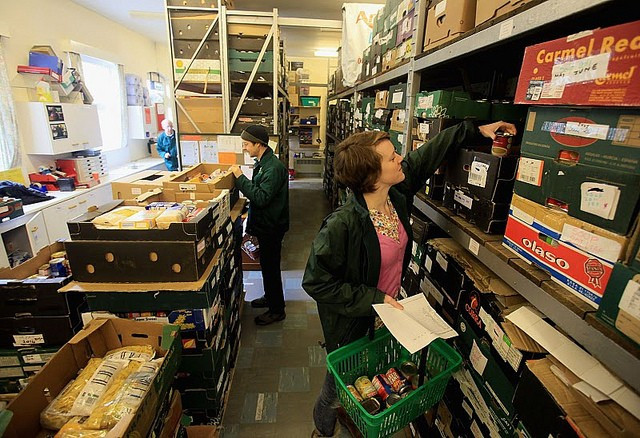
Going hungry
Not being able to feed yourself, let alone your family, is slowly becoming the 'norm' for many of the middle class, and while this seems like a sensationalist claim, statistics reveal the worrying truth. Only two months ago, a survey of 2,000 parents conducted by the UK's largest parenting website and well-recognised organisation Netmums revealed that one in five were regularly missing meals in order for their children to eat.
Furthermore, homelessness charity Shelter revealed that more than one in five people have cut their spending on gas and electricity to help pay their rent or mortgage in the last 12 months, which is a 60 percent increase since 2008.
It is no wonder that cutting food spending, and therefore eating, is the first thing to go. In fact, in the last 12 months, Shelter says that just over one in three of us have spent less on food to pay for our housing costs.
The troubling data was subsequently followed by the disastrous and well-reported clash on BBC radio between an infamous ex-Conservative Party MP, Edwina Currie, and a struggling young mother who had two jobs, no benefits and was regularly skipping meals to feed her two boys.
Currie's response only highlighted the misconceptions and misunderstanding of how the middle class are being squeezed into a crisis.
"When the money was coming in - this sounds like there were two salaries coming in, and no savings - life was being lived to the full and a very good life indeed," said Currie. "But when that's no longer the case, when there's no longer money coming in, you have to evaluate whether you are going to be able to get back to the good life quickly or not. In which case, you are going to have to think about maybe declaring yourselves bankrupt."
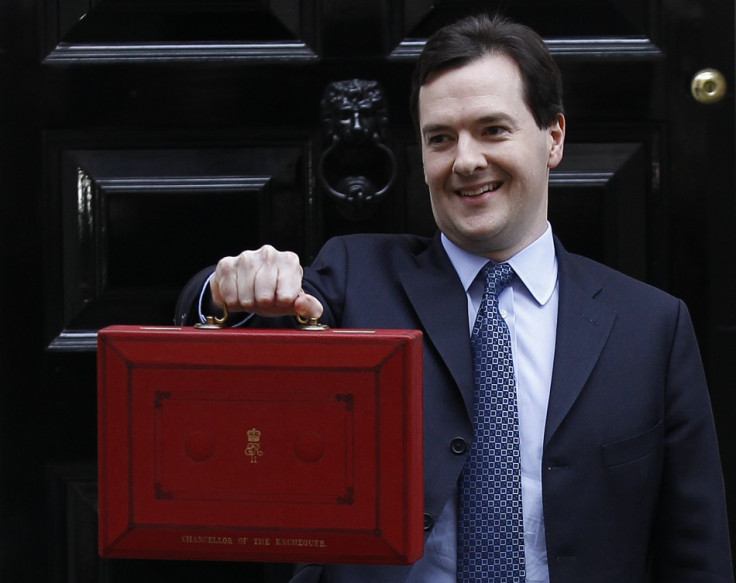
The UK government's budget in March was widely criticised for tightening the noose around middle-class families, while people at the other ends of the spectrum received a helping hand.
For instance, the government took tentative steps to help those paying the higher taxes by slashing the 50p tax rate to 45p and corporation tax to 24 percent, down by a further 2 percent by 2014.
While the government announced that it would raise the threshold at which people start paying tax to £9,205, at the beginning of April, it enforced new in-work benefits rules that require couples to work an extra eight hours a week in order to keep their benefits. This could cause a plummet in income for many families.
Paul Pickhaver, the Kingston Foodbank manager, sees the crisis in many middle-class families switching from amber to red alert in the near future, as some families are on the precipice of ruin and are turning more and more to the foodbank for help.
"There is a common misconception that you see families owning businesses, living in decent homes in affluent areas and a car on the driveway and that they are surviving the recession," Pickhaver says. "However, at the moment, many people who own businesses are barely surviving and the car in the driveway is likely to be on lease and will be sold at a loss very soon. Most of these lives have been built on debt."
A home built on debt
In London, where the average wage stands at £33,896 per year, many areas like Kingston are remarkably neat and lined with plush houses, tidy high streets and boast some of the highest earners in the country. In fact, Kingston council tax is highest in London.
However, behind these statistics lies a burgeoning undercurrent of debt that mirrors other counties all around the country and has led to three Foodbanks being opened in the Kingston area alone.
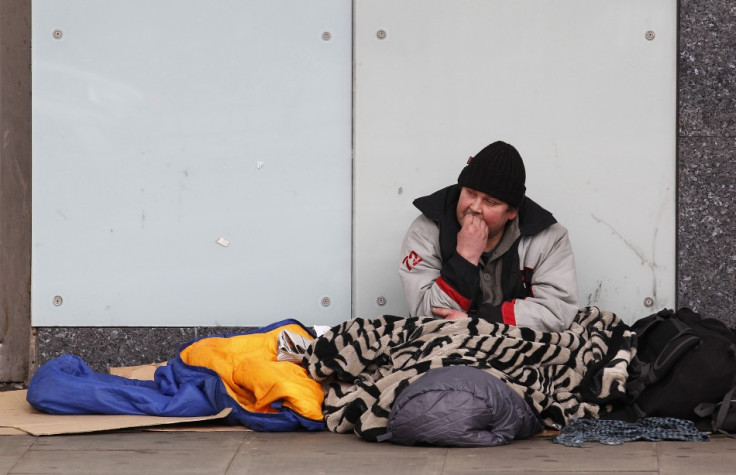
"Kingston is certainly not the poorest of boroughs, but this is one of the places that have needed foodbanks the most," Pickhaver says. "Many families here have had breadwinners lose their jobs, and suddenly they can barely pay the bills and keep hold of their home and cars. One thing they feel they can pare back on immediately is food expenditure."
Since the opening of the third foodbank in Kingston in December last year, the centre has seen predominantly an influx of previously comfortable middle class families come to get enough food to tide their families over for at least a few days.
"When I heard from several people visiting one of the other Kingston foodbanks that they walked over four miles to get to us, we knew we had to open another in an accessible location," says Pickhaver.
The foodbank, which relies on food donations rather than financial aid, has had its fair share of newly homeless clients or families that are relying on them to help feed their families while they sit in a benefit limbo.
Over a cup of coffee, Pickhaver reels off a list of people he has met through the centre that have arrived in a car to pick up food aid one day and the next have had to walk long distances after selling the vehicle at a loss, just to stay solvent.
"There is an overwhelming use of the phrase 'I never believed this would happen to me. I wish I saved'", says Pickhaver. "We have had so many mothers with their buggies turning up for food for their families and regularly tell us about how, by the end of the week, they are living off crackers so their children can have a proper meal."
Chris Smith, 30 (his name has been changed to protect his identity) mirrored that of Jag's in Birmingham. He used to live in a decent flat in Kingston with his partner, earned a steady wage, but had no savings. When he lost his job, his relationship with his partner, which he said was already shaky, ended; soon enough he was sleeping rough on a park bench.
Like Jag, his family and friends have not been able to help, as they are renting out their rooms to help with the debt they have accrued, or to build up a fighting fund in case they lose their own jobs. According to the same Netmums survey, a quarter of parents are living on credit cards, and one in 20 has taken out a bank loan to fund everyday living. Meanwhile, almost a third have borrowed money from friends and family, and 5% are taking regular payday loans which charge APR interest rates into the thousands percentile range, to make ends meet.
Meanwhile, for those middle class families who are still in homes, becoming homeless is a reality that is growing rapidly more likely for some.
"Amid growing economic gloom and rising unemployment, increasing numbers of ordinary families are falling victim to our housing crisis," Campbell Robb, Chief Executive of Shelter says. "Some may be priced out of the housing market, forced to bring up their families in a revolving door of private let after private let. Others may have to leave the areas they have always called home, driven out by the cost of housing."
Latest figures from Shelter show 12,830 homeless applications were accepted between October and December 2011, which is a rise of 18 percent since the same time the previous year, while in London the figures show a 36 percent rise over the same period.
In Birmingham, Jag says that even if he was to find a job, he would still be homeless for a significant time because he would not qualify for temporary accommodation in the interim as he is not deemed at risk, even though he cannot save for a flat deposit.
Pickhaver and Mould point out that many families have been caught in the trap of not even being in the position to sell their property, which has led to a huge rise in rental prices across the country. With average rents in London already more than double the national average, according to Shelter, places like Kingston are hit the worst.
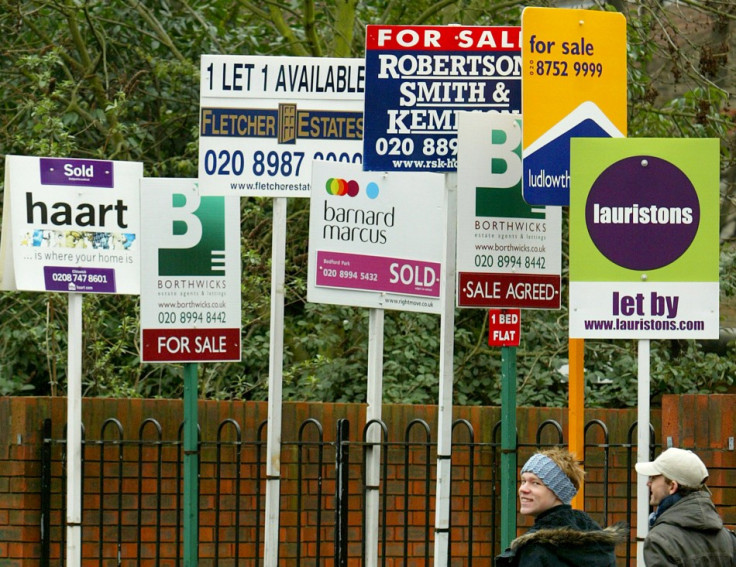
Rent Watch London, part of Shelter, revealed only a couple of weeks ago that renting a two-bedroom home in London is unaffordable for families earning less than £52,000, and now more than one in four families in London rent from private landlords. Furthermore, the need for food aid is predicted to increase for the foreseeable future.
"Eventually, every community will need a foodbank, affluent or not," Mould says. "The increased volume of people needing food aid is a consequence of the recession, and the previous Labour government didn't talk or listen to agencies like us. However, it is naïve to say that the growth of the Foodbank network grew as soon as the coalition government came into place. That is simply not true, but with this government there has been a more open dialogue with us. But, and there is a big but, following the measures taken in the UK budget in March 2012, I cannot see this helping."
Mould says that the recent budget cuts in public services and welfare, along with changes to taxation (and an increase in direct taxation as opposed to income tax) will only exacerbate the crisis they are seeing around the country.
"The way I look at it, from 2013, when the bulk of the impact from the recent budget is felt, the situation will be much worse for a large proportion of people," Mould says. "That sounds dramatic, but if you look at the Treasury's own analysis of the cumulative impact of these decisions around welfare, benefits and taxation and associated changes of the budget, the buying power of disposable income, proportionately all these changes will have a greater negative effect for a majority of the nation's earners."
Meanwhile, at the Kingston Foodbank branch, volunteer Beverley Duncan starts preparing for today's opening and organises the shelves of food and what she calls "shopping lists" for each individual that comes through the door. Meanwhile other volunteers from the church, where most of the Foodbanks are housed, busy themselves with prepping fresh tea and coffee, and setting up tables to welcome those in need.
"Whenever someone comes in, we sit them down and listen to their story and situation and help them as best we can," Pickhaver says. "We cannot solve their debt problems or other problems but we are able to bridge them with the right people, and in the meantime make sure they don't go hungry."
In Birmingham, Jag, like many others, is facing a seemingly never ending wait for benefits, and will have to find food and accommodation in the near future.
"My self-esteem is at an all-time low," Jag says. "I know I keep repeating myself when I say this, but I cannot believe I am in this situation. Only a few months ago I was living comfortably and going to the pub with friends and now I am left with nothing. I wish I had saved and I wish I savoured every drink I drank and bite that I ate. However, throughout this whole circle of events, Patricia from the foodbank has been my angel. Without her and the group, I know I would starve."
© Copyright IBTimes 2025. All rights reserved.






















